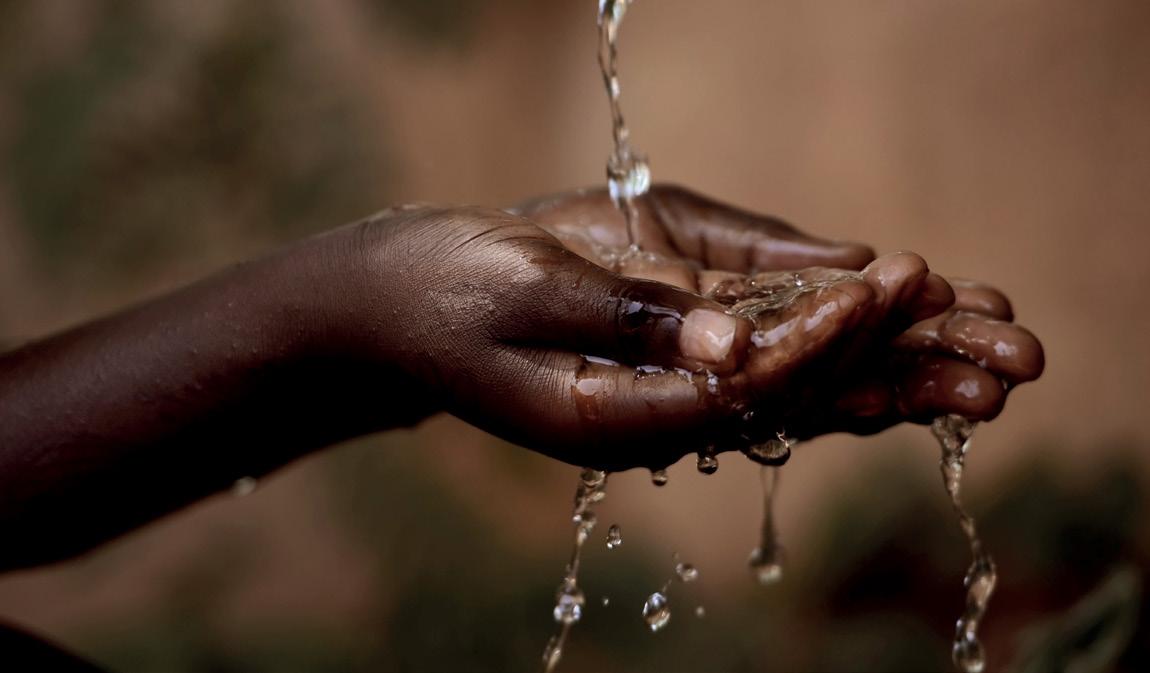
2 minute read
THYSSENKRUPP TAKES A MULTIDISCIPLINARY APPROACH IN ITS STAND AGAINST COVID-19
As the COVID-19 pandemic tightens its grip, thyssenkrupp Industrial Solutions is assisting customers to maintain operational efficiencies through sustainable service delivery and innovative technologies.
“The global economic crisis, as a consequence of the COVID-19 pandemic, has put the drive for efficiency into top gear,” states Philipp Nellessen, CEO of thyssenkrupp Industrial Solutions sub Saharan Africa. “Fundamental to this drive is cutting-edge technology. Through our ongoing investment in people and R&D and our over 200 years of expertise, we are able to develop advanced technologies to assist mining and other industries in achieving maximum operational efficiencies.”
The engineering powerhouse has also applied its technology prowess to assist the general public in the fight against the spread of the virus with the development of a Sodium Hypochlorite mobile trailer for spraying disinfectant on the streets in COVID-19 hotspot areas.
Two of the company’s leading technologies are solar thermal heat coupled with biomass fired plant solutions for sugar plants (from the boiler to the integrated sugar plant). This technology is new and significant in the market since operating costs are optimised with low capital investment. Wilfred Barkhuizen, thyssenkrupp Industrial Solutions sub Saharan Africa GM Mining, explains that sugar plants use biomass residue from sugar cane (Bagasse) to produce process steam and electrical power which is primarily used to drive sugar plant machinery with surplus power fed to the power grid.
Sugar plants are typically operational for only a portion of the year and the amount of raw material is only sufficient to produce power for roughly six months. Subsequently, high CAPEX equipment (boiler, turbine, generator etc) stand idle for the remainder of the year.
Although the South African mining industry was not operational during national lockdown Level 5, critical repairs were still permitted. As an essential service provider, thyssenkrupp has been delivering maintenance and repair as well as rebuild work to local mines.
In order to remain operational and continue seamless service delivery to customers, thyssenkrupp has implemented all necessary policies in line with Government COVID-19 regulations. These include possession of all essential services permits and strict entry control protocols for employees, visitors and suppliers at all premises.
Employees are required to attend mandatory training sessions conducted by the OSH department, wear all necessary Personal Protective Equipment (PPE), sanitise regularly and maintain social distancing. A dedicated COVID-19 committee has been set up to assess changing regulations and risks associated with office and site working environments.
Wrapping up, an optimistic Nellessen says that he is in no doubt that South Africa/subSaharan Africa will recover.
“The people here are incredibly brave and innovative and companies will find their way out of the crisis. We have seen a significant decline in order intake in the last few months, especially in our chemical business with some of our customers having been dealt a double blow - COVID-19 and an unpreceded decline in commodity prices in the oil and gas sector of the global economy.
As industry partners, we are here to offer our support.
Despite tough times ahead for some industries, the mining sector continues to show growth and here I foresee a restart and a good recovery, depending on mining commodities probably taking anything between three to 12 months to reach previous and required pricing levels.”

Philipp Nellessen and Neville Eve of thyssenkrupp Industrial Solutions with thyssenkrupp’s Sodium Hypochlorite trailer for disinfecting streets and pavements to limit the spread of COVID-19










